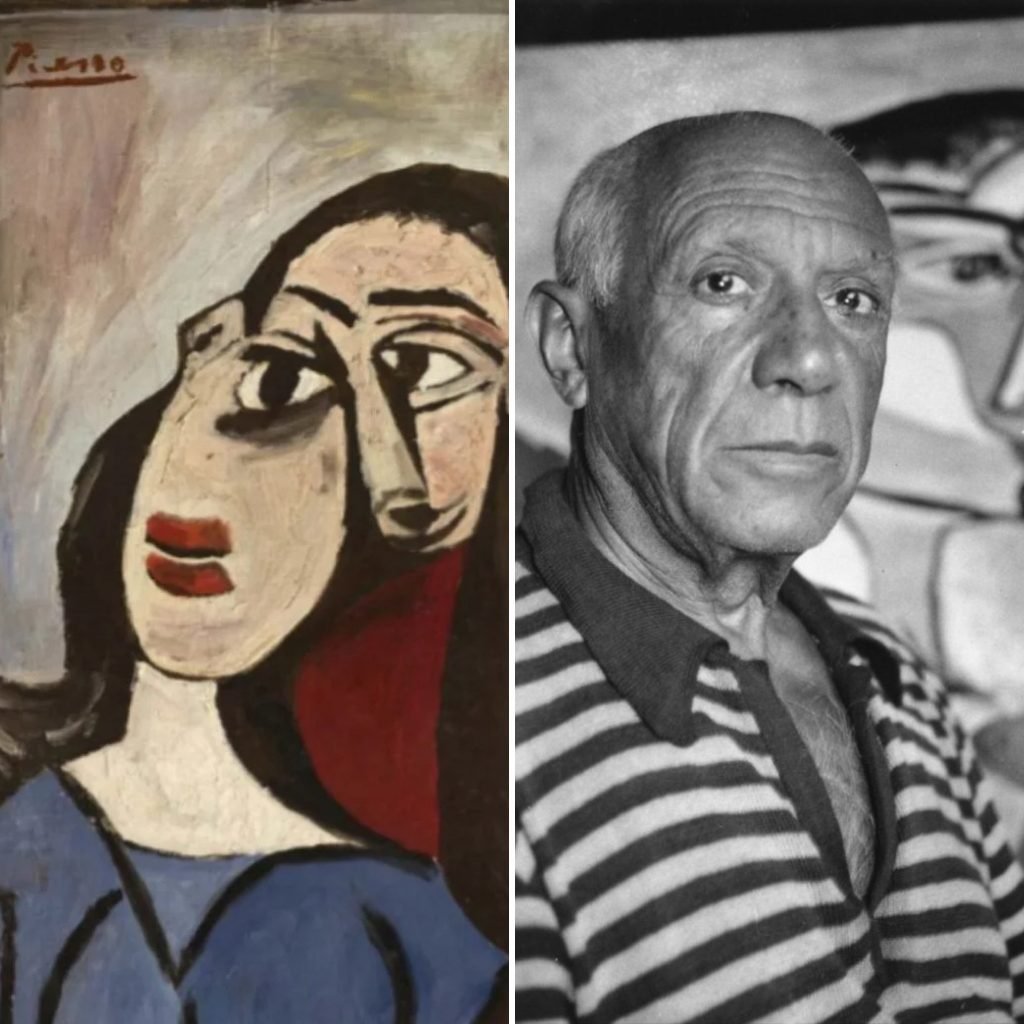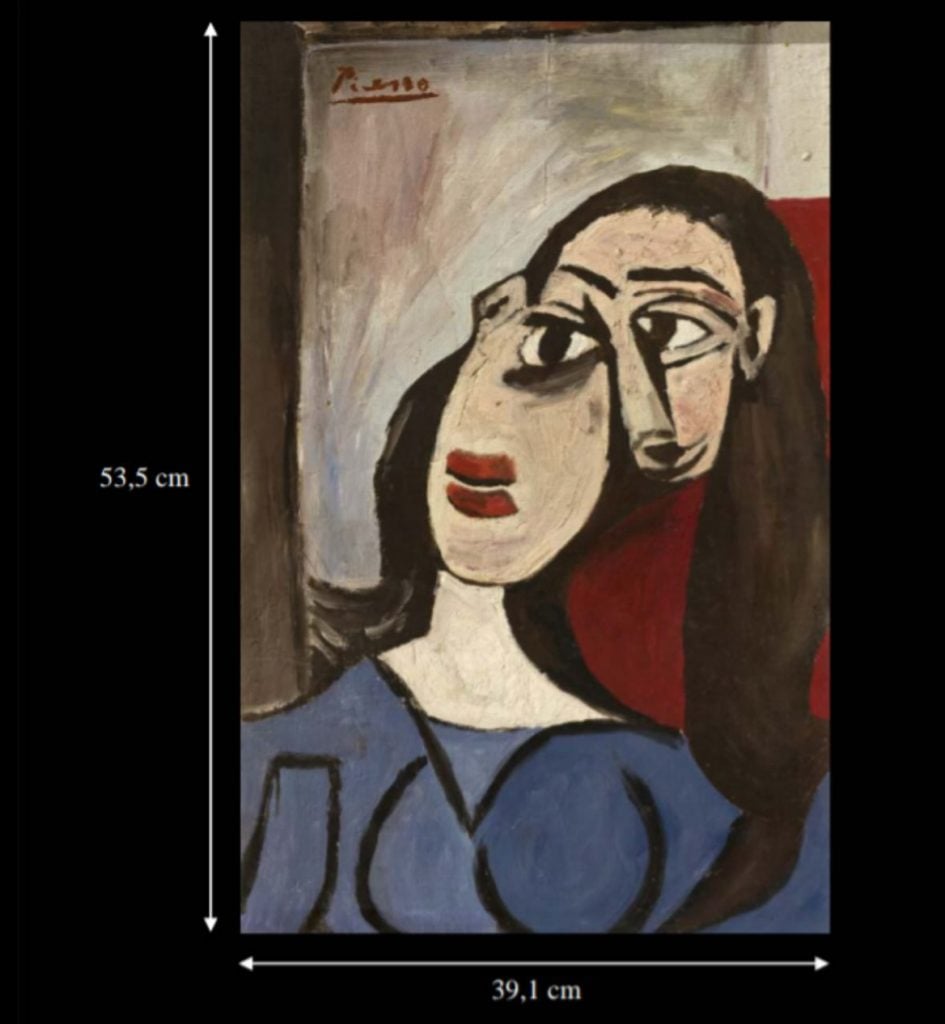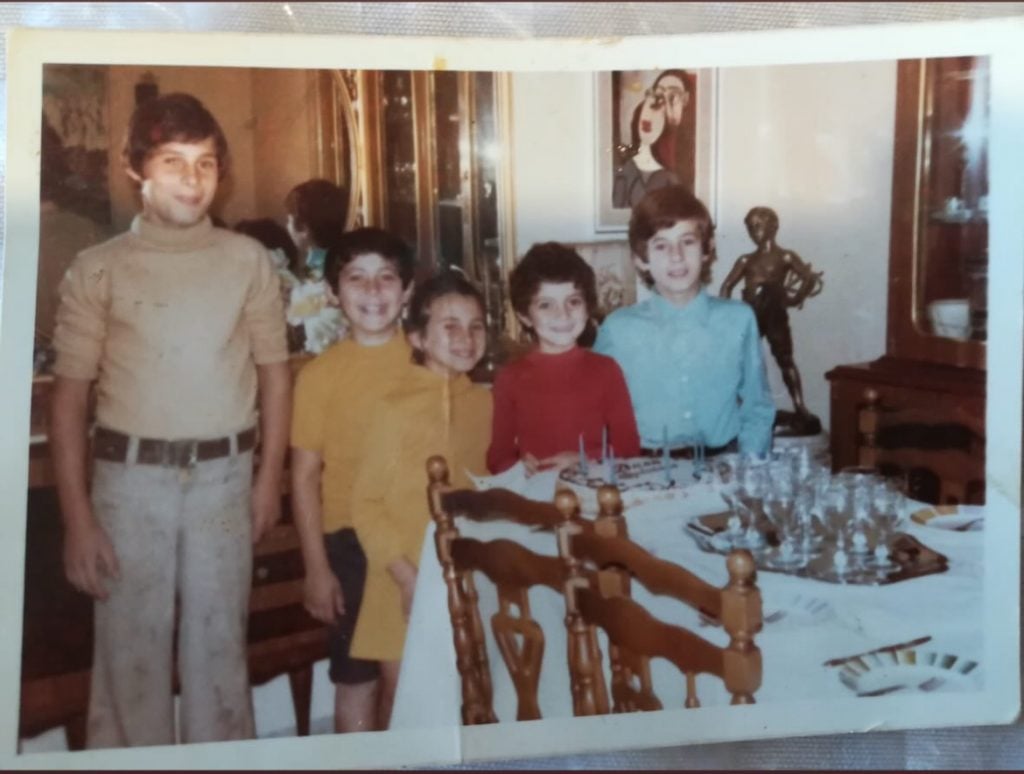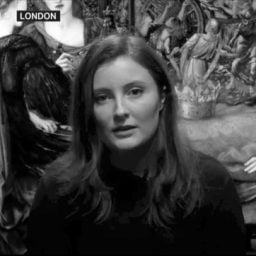Art World
‘Horrible’ Painting Found by a Junk Dealer Could Be a Picasso Worth $6 Million
An Italian family had long debated throwing away the unconventional portrait.

It’s not often you sit down to read a book about the greatest masterpieces of art history, then look up to find a stellar example hanging on your own wall. Yet this was apparently the experience of Andrea Lo Rosso, who began raising questions about a peculiar painting in his parents’ living room at their home on Capri in Italy. Could it possibly be by Picasso, the forefather of Modern art himself?
For years the man’s parents had argued over the unconventional portrait, which was discovered by his father Luigi Lo Rosso in the cellar of a villa in Capri 1962, given a cheap frame, and put on the wall. This did not please his wife, who despaired at the female sitter’s strangely contorted face. The scrawled name “Picasso” in the top left hand corner meant nothing to either of them.

A painting owned by the Lo Rosso family in Capri, Italy has recently been attributed to Picasso. It is believed to be a portrait of Dora Maar. Photo courtesy of Andrea Lo Rosso.
“My father was from Capri and would collect junk to sell for next to nothing,” Lo Rosso told the Guardian. “He found the painting before I was even born and didn’t have a clue who Picasso was. He wasn’t a very cultured person.”
“My mother didn’t want to keep it—she kept saying it was horrible,” he added.
The family sought out the counsel of the Arcadia Foundation, which carries out art attributions and appraisals. A member of its scientific committee, Dr. Cinzia Altieri, a trained graphologist or handwriting specialist, studied the signature on the painting. The foundation also enrolled the help of famed art detective Maurizio Seracini, who led a chemical-scientific analysis of the work.
As a team, these experts have confirmed the attribution to Picasso. The painting has been identified as a portrait of Dora Maar, the French Surrealist photographer, painter, and poet who was at that time Picasso’s mistress.
It is believed to have been made some time between 1930 and 1936 during a trip to Capri, where Picasso often visited, although he first met Maar in late 1935 or early 1936. The pair had a relationship lasting nearly nine years and, though she was an artist in her own right, Maar’s work has only recently received the attention it deserves. In 2019, a landmark retrospective of over 250 works by Maar was presented at the Centre Pompidou in Paris and Tate Modern in London.
If the attribution turns out to be true, the Lo Rossos can expect a financial windfall. The Arcadia Foundation has valued the alleged Picasso at €6 million ($6.7 million).

A family photograph shows the Lo Rosso children standing in front of a painting now attributed to Picasso. Photo courtesy of Andrea Lo Rosso.
The artist painted many portraits of Maar in their time together, and several reside in major museum collections today. The auction record for a painting of Maar by Picasso was set in 2006, when Sotheby’s New York sold Dora Maar au chat (1941) for $95.2 million, according to the Artnet Price Database.
Unfortunately for this team of Italian art sleuths, their rediscovered modernist masterpiece piece is unlikely to fetch in the millions until it has been legitimized by official Picasso authenticators.
Andrea Lo Rosso said that, so far, the Picasso Foundation in Malagá, Spain has refused to even assess the work, which it believes to be a fake. The foundation declined to comment publicly on the work when contacted by Artnet News. It reportedly receives hundreds of authentication requests every day.
The Picasso Administration in Paris has also been reached for comment but did not respond by publication time.





